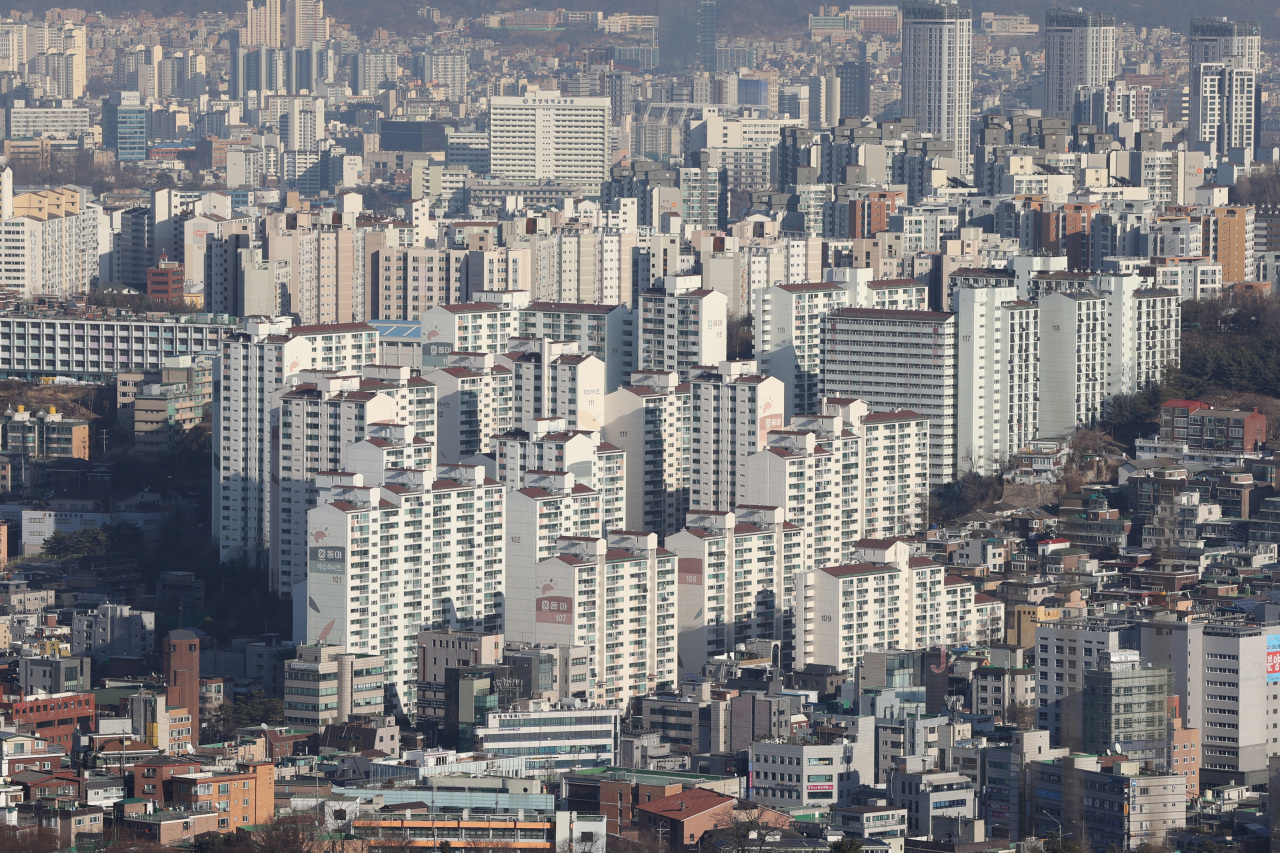The election of Seoul’s new mayor has left the central government’s housing policies in limbo, as the administration is expected to face pushback from the conservative bloc that is campaigning to ease real estate regulations.
The political realignment following the results of the by-election last week has sparked concerns over possible policy shifts for the property market.
The government and ruling Democratic Party of Korea are expected to hold talks to revise real estate policies by reflecting issues raised during the election campaigns.
Democratic Party spokesman Choi In-ho said Monday the party would launch a team tasked with reviewing policies tied to housing welfare and real estate stability this week.
“We will discuss all real estate policies including ones that should be maintained and that need to be supplemented,” he said.
Such moves increased uncertainties over the latest housing policy drawn up by the government which focuses on increasing the home supply in the Seoul metropolitan area and other major cities to stabilize the heated real estate market.
During a meeting with members of main opposition People Power Party on Sunday, Seoul Mayor Oh Se-hoon requested cooperation from his party members on amending laws and ordinances to realize his campaign pledges to ease real estate regulations.
Taking a policy initiative on the country’s property market is crucial for both the Seoul mayor and the Moon Jae-in administration, which appears to be entering a lame duck phase.
Discontent over soaring home prices and failed policies were deemed as the main factor for voters to have cast their ballots to the opposition candidate in last week’s by-elections.
Oh pledged to expedite deregulation to provide 185,000 houses in the next five years by invigorating private sector-led reconstruction and redevelopment of urban areas in stark contrast to the government’s public-led expansion of the housing supply.
The government and lawmakers from the ruling Democratic Party criticized Oh’s deregulation push citing concerns that it would lead to an increase in housing prices.
“Mayor Oh is trying to overturn the property market trend which just started to stabilize as the effect of policies in favor of owner-occupied housing kicks in,” Rep. Shin Dong-kun said.
Prices of aging apartments in Gangnam and Mok-dong, where reconstruction has been delayed, have been soaring on expectations of private sector-led transformation.
According to the Ministry of Land, Infrastructure and Transport on Monday, a unit in the Hyundai Apartment complex in Apgujeong-dong was sold for 8 billion won ($7.1 million) on April 5. The price of the apartment stood at 6.7 billion won six months earlier.
Frequent policy shifts stemming from election results are not new.
According to the Korea Economic Research Institute on Monday, Korea showed the second-highest level of economic policy uncertainty among 20 major global economies.
Using an index based on frequency counts of newspaper articles on policy-related economic uncertainty, the think tank said the country ranked second with 43.7 points, following the UK which topped the list with 81.1 points, mainly due to its exit from the European Union.
Korea and Spain ranked as the top two countries where the instability of economic policy has steadily increased, based on three measurements in 2006-2010, 2011-2015 and 2016-2020.
KERI pointed to several policies that caused economic instability, including real estate rental policies, holding company system, nuclear plant and financial policies as well as issuance of coupons aimed at boosting domestic consumption amid the COVID-19 pandemic.
“If economic policies change frequently, it is difficult for companies and other economic players to plan and execute investment activities properly,” said Choo Gwang-ho, KERI’s economic policy research head.
Maintaining a consistent economic policy and increasing predictability facilitates a stable growth, he added.
If economic policy instability increases by 10 percent, domestic stock prices will decrease by 1.6 percent and GDP by 0.1 percent, the institution said.
By Park Han-na (
hnpark@heraldcorp.com)








